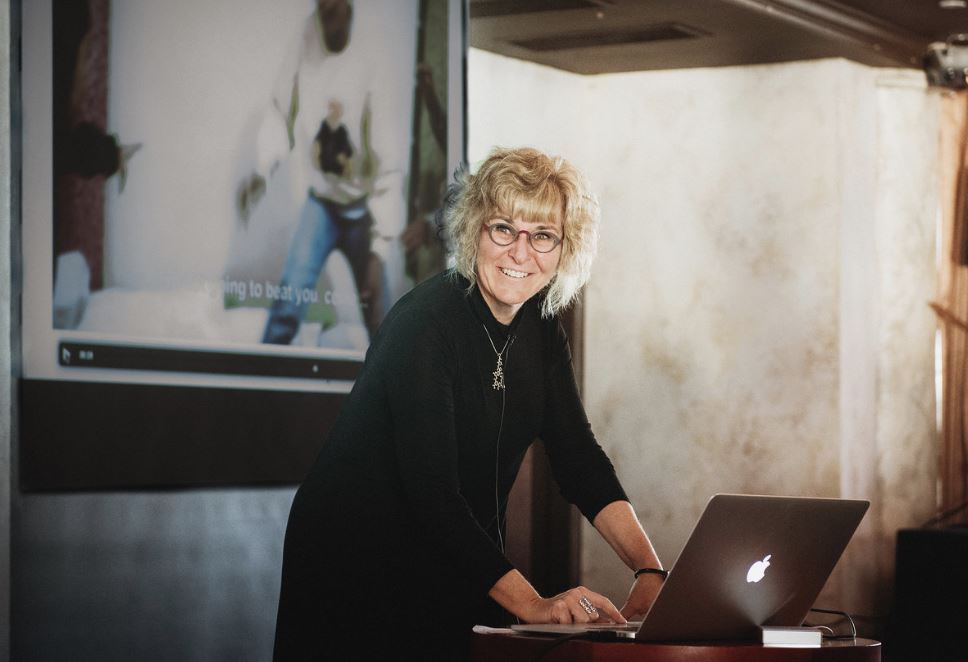A renowned author, teacher, speaker, and occupational therapist is sharing her thoughts about a post-pandemic world.
Comox Valley Schools is hosting an online presentation tonight with Kim Barthel called ‘Sending our Children to School: What does that mean after the Pandemic.’
Barthel’s presentation is open to all district families and runs from 6:30 to 8 p.m. via Zoom.
As of 2:45pm today, 234 people have registered for the meeting. If anyone still wants to to register before 6:30pm, they can email [email protected] and will sent the presentation details.
Ahead of the presentation, Barthel spoke with 98.9 Jet FM hosts Pete Montana and Robyn Clarke about the anxiety families are facing during this age of uncertainty.
What can parents expect from the meeting?
In this collective trauma that we are globally experiencing, the greatest challenge is uncertainty, and how to manage the emotions of uncertainty. The focus of the Zoom conversation is about how to support ourselves in constant turbulence, and how to find resilience within ourselves. So every time we have a transition to a different stage or a different phase, the uncertainty grabs us and creates another layer of anxiety, so the intention of the part of the Comox Valley School Board is to support parents and support teachers and support the community in this process of the next phase of returning back to school.
There are so many unknowns, because we have never had to deal with anything quite like this, at this level, and in particular trying to explain this (to children).
The interesting thing about brain science is it’s really not about what you do but how you do what you do. Our kids… they rely on us non-verbally, more than verbally, so one of the things we’re going to talk about in the conversation is about how to regulate ourselves or be our authentic selves, to let our kids know what we know and what we don’t know and it’s really communicated in your voice.
It’s communicated in our voice, it’s communicated in our face, and the words, they matter less than the feelings that are behind them.
Our No. 1 priority is to keep our children safe and healthy, physically and mentally. How do you help navigate those waters, when parents are also dealing with the fear of judgement, and taking that and trying to make the best decision they can?
Situations like this, what they bring out in us, is the best of humanity and the worst of humanity. We are getting to see the best of each other and the worst of each other, and what we know about is what we call the circle of influence versus the circle of concern. The circle of influence is the stuff I can control, and the circle of concern is where I hang out with the stuff I can’t control, and what I can’t control is what other people say or think.
Nobody knows what each individual situation is, whether you have grandma at home living with you, whether you have a compromised immune system, whether you have mental health issues in your home, nobody can walk in each other shoes so we have to support ourselves and when faced with adversity or faced with conflict, to try and say, ‘It’s okay, we’re all doing the best we can with what we have.’”
Is there anything you would like to add about what people can expect (during the meeting)?
In the conversation, they will hear a little bit about the brain science of emotional regulation – how to support your kid, and how to support yourself emotionally and also how stress impacts learning. And how, when we go back to this new normal of school, it’s going to be different, and how to be okay with different, and that will be the emphasis of the conversation.
Kindness and patience are the two key words as we move forward, but is there any advice you might have?
Be kind to yourself, (and) when you feel afraid, just say to yourself, I’m feeling afraid right now.’ We say, ‘name it to tame it.’ When you can acknowledge how you’re feeling the way you are, it already moves.






